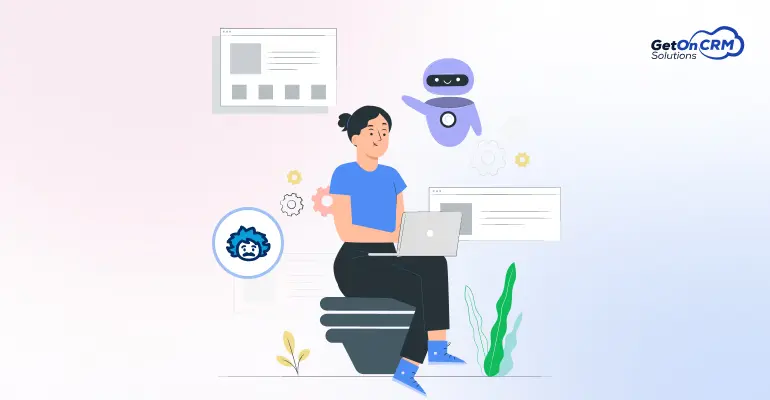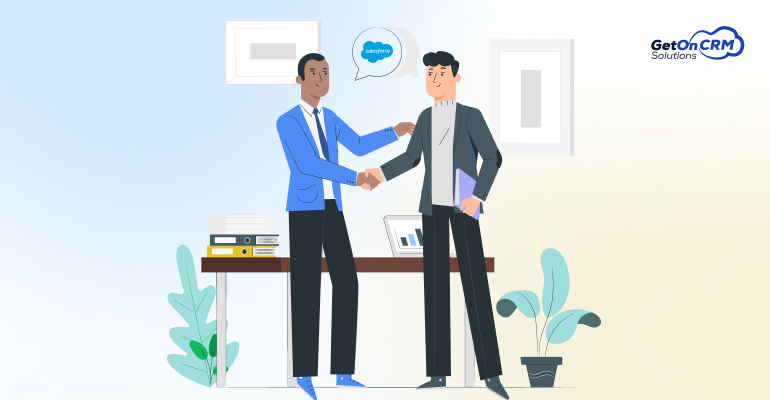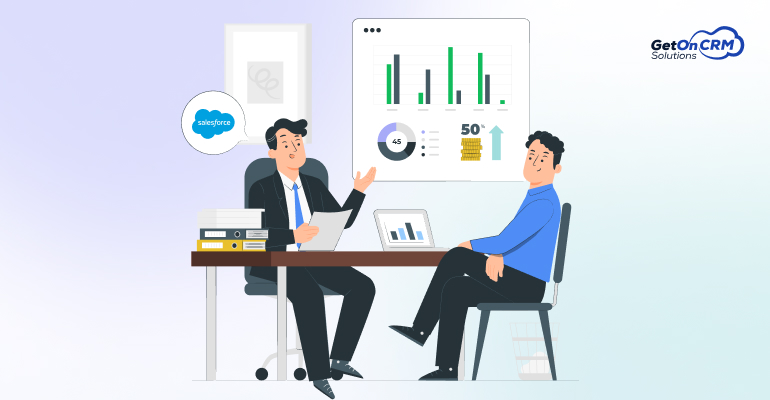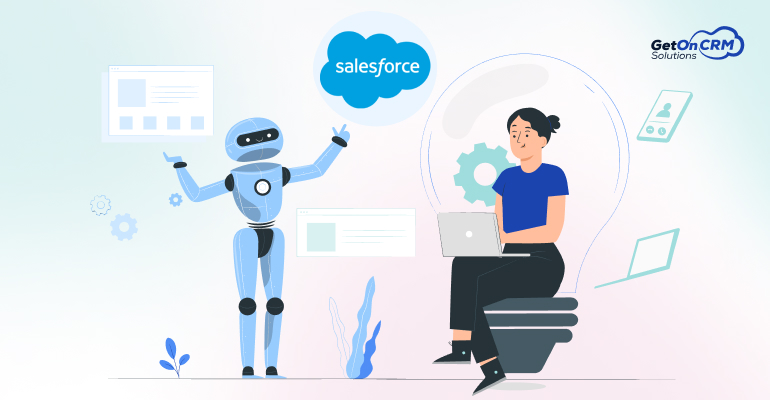Customer experience is now a critical factor in business success. According to PwC, 73% of customers say a good experience impacts brand loyalty, yet only 49% feel companies deliver this. AI bridges this gap, and Salesforce Einstein Co-Pilot leads the charge in AI-powered customer interactions. It enables businesses to provide personalized, efficient service at scale, tackling issues like operational inefficiencies, customer churn, and slow response times.
Why Now?
The global AI market in customer service is projected to grow from $1.2 billion in 2020 to $7.3 billion by 2026 (MarketsandMarkets). The COVID-19 pandemic accelerated AI adoption, making it essential for managing digital customer interactions. Decision-makers now ask, “How fast can we implement AI?” rather than “Should we?”
In this guide, we will uncover how Salesforce Einstein Co-Pilot is helping businesses like yours lead the charge in AI-powered customer interactions and make a case for why it’s a strategic investment that will drive growth in the years to come.
Key Features of Salesforce Einstein Co-Pilot: Maximizing Business Impact
As businesses increasingly recognize the value of AI in enhancing customer experiences, Salesforce Einstein Co-Pilot has emerged as a standout tool. It offers a variety of powerful AI-driven features, helping companies deliver personalized and efficient customer service while driving operational efficiencies. Here’s a closer look at Einstein Co-Pilot’s core features and how they can maximize business impact.
Conversational AI for 24/7 Customer Support
Einstein Co-Pilot provides round-the-clock support through AI across chat, email, voice, and social media. AI chatbots are expected to save businesses over $8 billion annually by 2024 (Juniper Research). Automation reduces wait times, improves customer engagement, and cuts operational costs, allowing human agents to focus on complex tasks.
Predictive Analytics: Anticipating Customer Needs
The ability to predict customer needs is a game changer, and this is where Salesforce Einstein Co-Pilot shines. By analyzing historical data and customer behavior, Einstein Co-Pilot can provide businesses with predictive insights that help them anticipate what a customer might need next.
Imagine a situation where a customer has been browsing high-end laptops on an e-commerce site but has yet to make a purchase. Based on past behavior, Einstein Co-Pilot can predict that this customer is likely to need more information or an incentive, such as a discount. It can then proactively trigger a personalized email or offer to the customer, potentially closing the sale.
Predictive analytics translates into increased customer satisfaction, reduced churn, and higher conversion rates. A study by McKinsey found that companies using AI for customer service and sales saw a 10-15% increase in revenue by leveraging AI’s predictive capabilities. This proactive approach helps businesses stay one step ahead, ensuring that customers’ needs are met before they even ask.
Task Automation: Reducing Operational Costs and Improving Efficiency
One of the most time-consuming aspects of customer service is the manual handling of repetitive tasks. Whether updating customer records, sending follow-up emails, or routing cases to the right departments, these tasks can significantly drain resources. Salesforce Einstein Co-Pilot tackles this issue head-on with its powerful task automation capabilities.
In fact, a report by Deloitte revealed that businesses implementing AI-driven automation in customer service experienced productivity gains of 40% and a reduction in operational costs by 20-30%.
By automating these repetitive processes, businesses can significantly reduce costs and improve service efficiency, leading to faster response times and better customer experiences.
Natural Language Processing (NLP) for Enhanced Customer Communication
Einstein Co-Pilot’s natural language processing (NLP) engine is at the core of its ability to understand and respond to customer queries. NLP allows AI to understand human language in a way that feels natural and conversational, which is critical in delivering meaningful and accurate responses to customers.
One of the unique strengths of Einstein Co-Pilot’s NLP capabilities is its ability to handle multilingual support. It allows businesses to operate in global markets without needing a language-specific customer support team. Whether the customer speaks English, Spanish, or Mandarin, Einstein Co-Pilot can interact seamlessly, removing language barriers that previously hindered customer service operations.
A Salesforce survey found that 68% of service professionals expect AI to improve the quality of responses in customer interactions, and NLP is at the heart of this transformation.
Business Benefits of Salesforce Einstein Co-Pilot: Driving Growth and Profitability
Salesforce Einstein Co-Pilot not only enhances customer interactions but also offers significant business benefits that contribute to growth and profitability. In an era where customer experience is a key driver of business success, companies that invest in AI-driven solutions like Einstein Co-Pilot are positioning themselves to deliver higher returns, greater efficiency, and stronger customer loyalty. Let’s explore how Einstein Co-Pilot drives business growth and profitability.
Delivering Hyper-Personalization at Scale
AI-powered hyper-personalization goes beyond simply addressing customers by name. It involves using data to understand their past interactions, preferences, and behaviors to craft highly targeted recommendations and solutions. For instance, a retailer can use Einstein Co-Pilot to suggest relevant products based on a customer’s browsing history, past purchases, and even location. This level of personalization significantly boosts customer engagement and conversion rates.
Research by Accenture shows that 91% of consumers are more likely to shop with brands that provide relevant offers and recommendations. Additionally, companies that excel at personalization generate 40% more revenue than those that don’t, according to a McKinsey report. With Einstein Co-Pilot, businesses can automate the personalization process, ensuring that each customer receives a unique and engaging experience, all without increasing costs.
Improving Customer Retention and Lifetime Value
Retaining customers is more cost-effective than acquiring new ones, and Einstein Co-Pilot plays a pivotal role in helping businesses improve customer retention rates. By leveraging predictive analytics, the AI can identify customers who are at risk of churn and trigger proactive interventions to keep them engaged.
According to Harvard Business Review, increasing customer retention rates by just 5% can boost profits by 25-95%. Moreover, customers who feel valued and understood are more likely to remain loyal, increasing their customer lifetime value (CLV). AI-powered solutions like Einstein Co-Pilot make it easier to nurture these long-term relationships by providing timely, relevant, and personalized interactions at scale.
Enabling Omnichannel Engagement for Seamless Customer Experiences
One of the biggest challenges businesses face today is delivering a consistent customer experience across multiple channels. Customers expect seamless interactions, whether they are engaging via email, chat, social media, or phone. Salesforce Einstein Co-Pilot is built to support omnichannel customer service, ensuring that customers receive a unified and cohesive experience across all touchpoints.
A report by OmniCX found that companies with strong omnichannel strategies retain 89% of their customers, compared to 33% for companies with weak omnichannel strategies. The ability to engage customers consistently across platforms is crucial for improving customer satisfaction and loyalty, and Einstein Co-Pilot enables businesses to achieve this effortlessly.


Business Transformation Through AI-Powered Customer Interactions
Salesforce Einstein Co-Pilot is not just a tool for improving customer service—it’s a driver of broader business transformation.
Transforming Customer Service Operations
Einstein Co-Pilot can monitor customer behavior and identify potential issues, such as a customer struggling to complete a purchase. The AI can then trigger a proactive response, such as offering assistance via chat or suggesting an alternative solution. This shift from reactive to proactive customer service not only improves customer satisfaction but also reduces the workload on customer service teams.
A study by Gartner predicts that by 2025, 60% of customer service organizations will move from reactive to proactive strategies using AI. For businesses, this means fewer support tickets, faster resolutions, and a more efficient customer service operation.
Driving Revenue Growth Through AI-Powered Insights
Beyond improving customer interactions, Einstein Co-Pilot can directly contribute to revenue growth by providing businesses with actionable insights that drive sales. By analyzing customer data, AI can uncover hidden revenue opportunities, such as upselling and cross-selling opportunities, that human agents might miss.
When a customer is about to make a purchase, Einstein Co-Pilot can suggest complementary products based on the customer’s preferences and past purchases. It not only increases the average order value but also enhances the customer experience by offering relevant recommendations. According to Salesforce, businesses that use AI to guide sales decisions see a 15% increase in average order value.
Salesforce Einstein Co-Pilot in Action: Real-World Success Stories
The benefits of AI-powered customer interactions become even more compelling when we look at real-world examples. Companies across industries have implemented Salesforce Einstein Co-Pilot to enhance their customer service, improve operational efficiency, and drive revenue growth. Below are three success stories that illustrate the transformative power of Einstein Co-Pilot in action.
Case Study 1: Enhancing Customer Engagement for a Global Retailer
A global retailer faced the challenge of handling a massive volume of customer inquiries during peak shopping periods, such as Black Friday and the holiday season. The retailer needed a solution that could provide timely responses to customers without overwhelming its customer service teams or sacrificing the quality of support.
By implementing Salesforce Einstein Co-Pilot, the retailer was able to automate responses to frequently asked questions, such as order status inquiries, shipping information, and return policies. Einstein Co-Pilot’s conversational AI was integrated across multiple channels, including the retailer’s website, mobile app, and social media platforms. As a result, customers received instant responses to their queries, significantly reducing wait times.
Key Outcomes:
- 30% reduction in customer service response times.
- 40% decrease in customer service ticket volume due to automated resolution of routine inquiries.
- 20% increase in customer satisfaction scores (CSAT) during peak shopping periods.
This automation not only improved the customer experience but also allowed the retailer to scale its operations during peak demand without adding extra support staff, resulting in substantial cost savings
Case Study 2: Boosting Sales Productivity in a B2B Enterprise
A B2B enterprise specializing in manufacturing equipment needed help with its sales process. Sales representatives spent a significant amount of time manually sifting through leads, trying to identify high-value prospects. Additionally, follow-up on leads could have been more consistent, leading to lost opportunities.
Salesforce Einstein Co-Pilot was introduced to optimize the company’s lead management process. The AI analyzed historical sales data and customer interactions to identify which leads were most likely to convert. Einstein Co-Pilot also automated follow-up emails and reminders for the sales team, ensuring that no lead slipped through the cracks.
Key Outcomes:
- 15% increase in lead conversion rates within the first six months of implementation.
- 25% reduction in time spent on manual lead qualification, allowing sales teams to focus on closing deals.
- 10% shorter sales cycles, resulting in faster deal closures and increased revenue.
This use of AI allowed the company to focus on high-potential leads, boosting overall sales productivity and driving revenue growth.
Case Study 3: Enhancing Customer Support in a Financial Services Firm
A financial services company was facing challenges with its customer support operations. Due to the complex nature of financial products, support agents were frequently overwhelmed by high volumes of queries, many of which required in-depth knowledge and swift resolution. The company needed a solution that could streamline customer service without sacrificing quality.
Salesforce Einstein Co-Pilot was deployed to provide real-time, AI-driven customer support. The AI-powered tool helped categorize incoming queries based on their complexity and route them to the appropriate agents or self-service options. Additionally, Einstein Co-Pilot’s predictive analytics helped identify at-risk customers who might be on the verge of leaving the service, allowing the company to engage proactively.
Key Outcomes:
- 35% improvement in first-call resolution rates, leading to faster problem-solving.
- 20% reduction in customer churn, as the company was able to engage at-risk customers more effectively.
- 15% increase in customer satisfaction scores, as customers received quicker and more accurate resolutions.
By automating routine queries and providing predictive insights, the financial services firm was able to improve its overall support quality and reduce churn, leading to long-term customer loyalty.

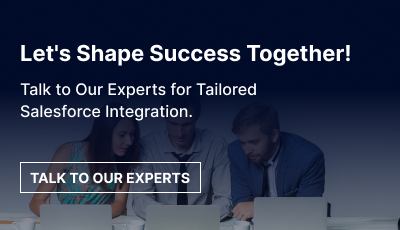
Salesforce Einstein Co-Pilot and Strategic Decision-Making
The power of AI isn’t just limited to improving customer interactions; it also plays a pivotal role in shaping business strategy. The insights provided by Salesforce Einstein Co-Pilot can lead to more informed, data-driven decisions that boost efficiency, optimize resource allocation, and, ultimately, drive business growth.
The Role of AI in Data-Driven Business Strategy
In today’s business environment, data is one of the most valuable assets a company possesses. However, having access to large volumes of data is not enough—what sets successful companies apart is their ability to turn that data into actionable insights. Salesforce Einstein Co-Pilot excels in this regard by providing real-time analytics that empower business leaders to make smarter, faster decisions.
Decision-makers can leverage AI-driven insights to identify trends in customer behavior, sales patterns, and service performance. It can guide everything from marketing strategies to product development decisions. In a survey by McKinsey, 63% of executives said that adopting AI in their business had led to increased revenue, primarily due to AI’s ability to offer deeper insights into customer needs and market opportunities.
Intelligent Automation for Better Resource Allocation
One of the key challenges for businesses is managing resources effectively. Whether it’s allocating workforce, budgets, or time, inefficient resource management can lead to wasted efforts and reduced profitability. Salesforce Einstein Co-Pilot helps solve this problem by automating routine tasks and providing insights that enable better resource allocation.
AI can analyze customer service data to forecast demand and optimize staffing levels.
Einstein Co-Pilot detects a spike in customer inquiries during a particular time of day or season. In that case, it can recommend adjustments to staffing levels to ensure adequate support without overstaffing. According to Gartner, businesses that use AI for resource management see an average cost reduction of 30% in operational expenses as resources are allocated more efficiently.
Enhancing Workforce Efficiency with AI
AI doesn’t just automate processes; it enhances the productivity and efficiency of the entire workforce. With Einstein Co-Pilot, businesses can empower their employees with tools that enable them to work more effectively and make better decisions.
Sales teams using Einstein Co-Pilot can access real-time insights that help them prioritize leads, customize their sales pitches, and close deals faster. AI can even provide sales reps with recommendations for the next best actions to take based on data analysis, which helps them focus on high-value tasks that directly impact revenue. A study by Harvard Business Review revealed that companies that integrate AI into their sales process see a 50% increase in lead generation efficiency and a 30% improvement in lead conversion.
AI Ethics and Compliance: Building Trust in AI-Driven Interactions
As businesses increasingly rely on artificial intelligence to drive customer interactions, ensuring ethical practices and maintaining compliance with global data protection regulations have become paramount. Salesforce Einstein Co-Pilot is designed with these critical considerations in mind, providing a platform that balances the benefits of AI with the need for transparency, fairness, and security.
Ensuring Compliance with Global Data Privacy Regulations
Einstein Co-Pilot helps businesses comply with GDPR, CCPA, and other data privacy regulations through encryption and anonymization. According to Cisco, 94% of companies believe customers care about privacy, and 84% report improved customer trust due to strong privacy policies.
Transparency and Ethical AI: Building Customer Trust
Salesforce ensures ethical AI use by promoting transparency and fairness. 67% of consumers believe AI should meet ethical standards (PwC). Transparent AI systems build trust and loyalty by treating all customers fairly.
Best Practices for Ethical AI Implementation
While Salesforce Einstein Co-Pilot provides businesses with tools to ensure ethical AI use, there are also best practices that decision-makers should follow to maintain customer trust and compliance. These practices include:
- Transparency in AI Use: Be open with customers about how AI is being used in their interactions. Provide clear explanations of the role AI plays in delivering services, and offer customers the option to opt out of AI-driven interactions if they prefer.
- Data Minimization: Collect only the data that is necessary to provide a service. It reduces the risk of data misuse and ensures compliance with privacy regulations like GDPR and CCPA.
- Continuous Monitoring for Bias: Regularly audit AI algorithms for bias and fairness. Ensure that the data being used to train AI models is diverse and representative to avoid unintended biases in decision-making.
- Secure Data Handling: Protect customer data with encryption, anonymization, and other security protocols. Ensure that AI tools like Einstein Co-Pilot comply with global data security standards.
- Ethical Oversight: Establish an ethical AI committee within the company to oversee AI practices. This group can review AI implementations, address any ethical concerns, and ensure that the company’s use of AI aligns with its values.
Measuring Success: KPIs for AI-Powered Customer Interactions
To ensure AI delivers measurable outcomes, businesses should track key performance indicators (KPIs) to assess effectiveness and identify areas for improvement.
- Customer Satisfaction (CSAT): Monitor how AI improves customer experience with faster, personalized responses. Increased CSAT scores indicate AI is meeting customer expectations.
- First-Call Resolution (FCR): Track the percentage of inquiries resolved in the first interaction. AI enhances FCR rates by providing accurate, real-time responses and reducing follow-ups.
- Average Handling Time (AHT): Reducing AHT without compromising quality demonstrates AI’s efficiency. Shorter handling times indicate improved workflows and operational efficiency.
- Lead Conversion Rates: AI helps prioritize leads and automate follow-ups, increasing conversion rates. Monitoring lead conversion pre- and post-AI implementation highlights revenue growth impact.
- Cost Savings and ROI: Track reductions in operational costs, like cost per interaction. Companies often report up to 30% cost savings, which is critical for showing long-term ROI.
Final Thoughts
Salesforce Einstein Co-Pilot offers decision-makers an unparalleled opportunity to elevate their customer service operations and drive long-term business success. From automating routine tasks to providing real-time insights and enabling personalized interactions, Einstein Co-Pilot is more than just a tool—it’s a catalyst for transformation.
GetOnCRM Solutions is a trusted salesforce ridge consulting partner for businesses looking to implement AI solutions that deliver tangible results. As a Salesforce Ridge Consulting Partner, GetOnCRM Solutions specializes in helping companies leverage Salesforce Einstein Co-Pilot’s full potential to enhance customer experiences, optimize operations, and drive growth.
Start your AI journey with GetOnCRM Solutions today and discover how Salesforce Einstein Co-Pilot can transform your customer interactions and boost your business performance.

